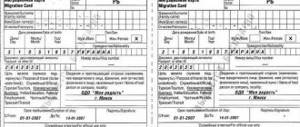General points
The provision of services for the maintenance of residential space depends on the type of development and the organization system chosen by the residents:
- private sector homeowners receive utility services directly from supply companies, according to concluded agreements. Owners have to decide issues of housing maintenance themselves;
- Residents of apartment buildings sign agreements with homeowners associations or management companies. It is possible to organize housing cooperatives. These structures interact with utility organizations - resource suppliers, are responsible for maintaining the house and surrounding area, garbage removal and solving other pressing issues.
Residents of apartment buildings often have doubts about the validity of the invoice received from the management company.
Basic Concepts
Housing and communal services payments are divided into two categories:
- utilities - mandatory services for the supply of energy resources, including water supply with drainage, supply of electricity, gas and heat, solid fuel (for stove heating). Methods for calculating prices for supplied resources are approved at the national level. But the final tariffs are set by regional authorities, taking into account the organization of the local economy;
- housing - expenses for the maintenance of common property, repairs of building structures, solid waste removal, etc. All residents of an apartment building have the right to determine the relevance of these costs and set the amount of payments. The decision is approved at the general meeting, based on information provided by management companies about the nature of the upcoming expenses.
Any residential premises are equipped with the following mandatory equipment:
- shower, bath, sink with working faucet;
- heating system;
- power supply with sockets and switches, other electrical appliances;
- sewerage system.
Objects from the specified list located within the apartment do not relate to public services, but to the means of providing them. The maintenance of this property is the responsibility of the owners.
View this post on Instagram
Raid on housing and communal services debtors (video). Bailiffs conducted raids to deal with non-payers of housing and communal services. Seizure of property, imposition of fines and payment of debts are the main activities of bailiffs when working with debtors. #raid #housing and communal services #debtors #bailiffs #MariEl #Volzhsk #Volzhsk24
A post shared by Volzhsk24 (@volzsk_24) on May 5, 2020 at 11:58pm PDT
Who are the obligatory payers?
Housing Code in Art. 153 provides for the need to pay for provided utility services by the following categories of entities:
- for renters of apartments or premises - from the moment of signing the contract;
- tenants or tenants of residential property from municipal or state facilities - from the beginning of the contract;
- members of housing cooperative communities - after receiving living space;
- homeowners - from obtaining the right to own the premises.
The legislation obliges citizens registered for housing to pay for housing and communal services. In fact, persons living in an apartment can pay for utilities voluntarily, after concluding an agreement with the owner.
If payers did not live in the premises, they are exempt from the obligation to pay for services that they did not consume. But this requires proper registration. When a citizen submits an application to the management company, providing documentary evidence of absence from the apartment, the utility fee is recalculated in the prescribed manner.
But the inclusion of expenses for maintaining common property in the payment is not canceled. The resulting debt is a serious obstacle when you intend to sell your living space. Failure to pay threatens the owner with claims filed in court by utility organizations. As a result, you will have to forcibly repay debts, along with accrued penalties.
Legislative norms
Issues of legislative regulation of payment for housing and communal services are regulated by the following regulations:
- Civil Code of the Russian Federation.
- Federal Law No. 261-FZ, signed in November 2009 and regulating energy saving issues.
- Law of the Russian Federation No. 2300-1, adopted in February 1992 and defining consumer rights.
- Housing Code of the Russian Federation.
- The concept of price and tariff policy in the housing and communal services of the Russian Federation.
- Government Decree No. 354 of 05/06/2011, approving the rules for the provision of housing and communal services to the population.
- Rules for the use of public water supply and sewerage systems in the Russian Federation.
- The main directions and mechanisms of energy and resource conservation in the housing and communal services of the Russian Federation.
Additionally, these issues are regulated by local government regulations.
Review of regulations in housing and communal services
GOST R 51617—2014 Housing and communal services and management of apartment buildings. Public utilities. General requirements
This GOST R was developed by a non-profit partnership of management companies. Therefore, it has absorbed all the typical errors in understanding the legal regulation of the activities of management organizations. Unfortunately, since the document has become GOST, it must be applied. Let's see what fundamental points are contained in GOST 51617-2014
.
First. Utilities and community resources. Perhaps the only positive point in GOST is the clear distinction between public services and public resources. Management organizations provide consumers not with utility resources, but with utility services. The difference is this.
Utilities are gas, water, electricity, etc. Utilities include not only gas, water or electricity, but also the maintenance of common property, as well as a number of other actions of the management organization. For example, within the framework of heat supply, GOST R provides, as part of public utilities, for the implementation of work to maintain utility networks in a regulatory manner, ensure the efficient operation of the ventilation system, and increase the efficiency of thermal protection.
Second. A management contract is a contract for the provision of services. This conclusion follows from clause 3.2 of GOST RF 51617—2014
. That's a moot point. However, now, for example, I am still inclined to believe that a management agreement is a service agreement. This is not a contract, not an agency agreement. Under a management agreement, owners are provided with the service of managing the house, rather than work on maintaining the house. Of course, house maintenance work is provided as part of management services. But the subject of the contract is management services.
Third. Composition of public services. As follows from clause 4.2 of GOST R 51617-2014
the composition of utilities depends on the availability of appropriate engineering networks in the house, as well as on the availability of engineering systems for supplying resources on the territory of the municipality. In addition, the composition of services, which is quite logical, is determined by whether the home’s networks are connected to centralized networks.
Fourth. Regulatory requirements for public services. GOST provides links to regulatory requirements for the provision of utility services.
Heat supply: SNiP 2.01.01
.
Hot water supply: GOST R 51232, SanPiN 2.1.4.2496-09, SanPiN 4723-88, SanPiN 2.1.4.1074-01
.
Cold water supply: GOST R 51232, SanPiN 2.1.4.1074-0, SNiP 2.04.01
.
Water disposal: SNiP 2.04.01, VSN 58-88 (r), Order of the State Construction Committee of the Russian Federation dated December 30, 1999 No. 168
.
Power supply: GOST 13109, GOST 29322, SP 31-110-2003, Order of the Ministry of Energy of the Russian Federation dated January 13, 2003 No. 6
.
Gas supply: GOST 5542, GOST 20448, Decree of the Government of the Russian Federation of July 21, 2008 No. 549, Decree of the Government of the Russian Federation of May 14, 2013 No. 410
.
Fifth. Responsibilities of the management organization. GOST R establishes many new responsibilities of the management organization:
1) dispatch and emergency repair services;
2) development of procedures for taking meter readings, the fact of provision of utility resources and services of inadequate quality. The management organization must have an official for each area;
3) the availability of an electronic information program for calculating housing fees;
4) the presence of qualified specialists capable of disconnecting or limiting utility services;
5) availability of specialists to conduct claims work;
6) availability of a specialist in working with resource supply organizations;
7) availability of specialists to ensure the regulatory maintenance of utility networks;
 quality control of the provision of public services, including conducting surveys, studying documentation, etc.
quality control of the provision of public services, including conducting surveys, studying documentation, etc.
Sixth. Not all of the above specialists must be on the staff of the management organization. GOST 51617
allows the conclusion of agreements with third parties who will assume part of the responsibilities of the management organization.
This grossly violates Art.
313 of the Civil Code of the Russian Federation , since on the merits of the legal relationship between management organizations and owners, the execution of a management agreement can only be personal.
GOST R 51929—2014 Housing and communal services and management of apartment buildings. Terms and Definitions
Value of GOST R 51929—2014
difficult to overestimate. Housing legislation lacks regulatory definitions of the most important concepts. This GOST R largely solves this problem. Please pay attention to the following.
The first is a safe state. A safe state refers to the property of a house to resist transition to an emergency state. The meaning of this concept is that the management of the house must ensure safe living ( part 1 of article 161 of the Housing Code of the Russian Federation
).
The second is indoor equipment. In GOST R 51929—2014
This means equipment that 1) is located in the apartment, 2) has a connection to the in-house utility network system. Moreover, the equipment connected to the first locking connection or device will be in-house.
Third, the boundary of operational responsibility. According to GOST R, the border is determined by agreement of the parties, but, as a rule, by the first locking device. If the agreement of the parties does not define the boundary of operational responsibility, then it is necessary to be guided by the boundary of balance sheet ownership.
Fourth – comfortable living conditions. This concept is also related to the goals of house management specified in Art. 161 Housing Code of the Russian Federation
. Comfortable means living conditions that meet regulatory requirements.
Fifth - an apartment building. Perhaps this is the most important definition in GOST R 51929-2014
. Of course, the Decree of the Government of the Russian Federation has already given the definition of an apartment building, but the definition given in GOST R is more complete. So, an apartment building is understood as 1) a capital construction facility, which includes 2) an intra-building engineering system, 3) common areas that are not part of the apartments, 4) other premises that do not belong to individual owners, 5) residential premises intended for the residence of two and more families, 6) and these premises have independent exits to common areas. Blocked buildings do not qualify as multi-apartment buildings. An apartment building includes built-in and (or) attached non-residential premises and adjacent territory (land).
Sixth – maintenance of the common property of an apartment building. In GOST R, this is understood as 1) continuous and 2) permanent implementation of a set of works and services that are included in the work plan, list of works and services, as well as additional types of work and services. Each of these categories is disclosed separately in GOST R.
Seventh – apartment building management service. In GOST R this is understood as the activity of organizing processes, works and services. Please note that the management service is not the same in nature as the services and work related to home maintenance. Management service is precisely the activity of organizing processes, works and services, and not the works and services themselves.
What does the list of housing and communal services for citizens include?
Payment for housing and communal services is calculated in two ways:
- according to the readings of individual metering devices;
- according to consumption standards, calculated according to approved methods, depending on the quantity prescribed for the living space.
Installed individual metering devices must be sealed before being put into operation. It is the responsibility of consumers to regularly provide information about meter readings to the management or utility company. The owner is responsible for the integrity of the seals and timely verification of meters.
If the device malfunctions or the meter verification is overdue, payment is made according to approved standards. Next - more details about the provision of various housing and communal services.
Electricity
Electricity supplied to apartments is paid according to the readings of installed meters. Consumers are forced to pay for the energy spent on servicing common areas - lighting of staircases, entrances, attics and basements, and the operation of elevators.
Unlike utility costs for electricity supplied to apartments, general house payments are calculated according to accepted standards, divided by the number of registered residents.
Legislation limits the maximum duration of interruptions in the supply of resources:
- two hours monthly if the facility is powered from two independent sources;
- days for the specified period, if the source is the only one.
The supplier is obliged to provide electricity with the established parameters, without voltage drops.
Hot and cold water supply
With cold water supply, the consumer is provided with water purified from harmful elements and pathogens.
Interruptions are allowed for a month, with a total duration of no more than:
- eight hours - in ordinary cases;
- twenty-four - in case of a large-scale accident.
For a hot water supply system, the requirements for the duration of interruptions are similar. Additional conditions require compliance with the temperature regime:
- when the water temperature is below plus forty degrees, the consumer can pay for services at cold water supply tariffs;
- Heating above seventy-five degrees is not allowed.
In the absence of common house communication systems, access to a public water stand must be provided.
Heating
Heating must ensure that the air temperature in the room is maintained at least eighteen degrees above zero. During the month, the total duration of interruptions in heat supply should not exceed twenty-four hours.
The following restrictions have been established for one-time interruptions in heat supply:
- at a room temperature above twelve degrees - no more than sixteen hours;
- within the range of ten to twelve degrees - up to eight hours;
- from eight to ten - within four hours.
The size of the payment is affected by the total area of the heated room. Tariff plans are approved by regional regulations.
Water disposal
Houses must be equipped with sewer lines that ensure the removal of consumed water. The drainage system is carried out to ensure proper environmental standards. The sanitary and epidemiological situation in the region largely depends on the condition of sewage drains.
The tariff is set by a resolution of local authorities, but is calculated on the basis of approved national methods. The amount of payment depends on the total volume of cold and hot water consumed.
Solid Waste Disposal
Garbage removal is included in housing payments. Payments for solid waste disposal are calculated according to the area of the apartment. But this situation raises a lot of questions among the population.
Most residents believe that it is more appropriate to determine expenses depending on the number of registered people in the apartment. With this accrual procedure, a methodology similar to the accrual of utility bills will be used.
ODPU fee
ODPU is a common house metering device. These funds are used to determine the amount of payments for energy resources spent on common property:
- the amount of resources on individual meters in apartments is subtracted from the ODPU readings;
- the resulting difference is divided equally between registered residents.
As a result, the management company gets the opportunity to pay suppliers for energy resources additionally spent on maintaining the common household facilities.
Additional services
In addition to the mandatory communal services, the management company or other organizations may offer additional services:
- cable television or internet;
- radio;
- intercom;
- paid parking, etc.
The owner of the living space has the right to choose whether or not to use the specified amenities.
Some nuances
Let's consider the features of payment for utilities by tenants of premises and organizations.
When paying rent
The rental of premises is formalized by an appropriate agreement between the owner of the living space and the tenant. The terms of payment for utility services are stipulated in the specified agreement.
The following options for the relationship between the parties are provided:
- fiduciary - the owner pays utility bills using funds received from the tenant;
- self-payment - settlements with utility organizations are transferred under the responsibility of the tenant, in accordance with actual meter readings.
Sometimes the provisions of the contract do not determine the payment procedure. But legislative norms provide that the payer of utilities, if there is a lease agreement, must be the entity renting the premises. In this case, the owner is obliged to monitor the timely payment of bills.
What should a legal entity pay for?
Legal entities, along with individuals, are required to pay for consumed resources. Payment is made in accordance with concluded agreements with management or utility companies according to the readings of individual metering devices. Legal entities pay for services in the same way as an ordinary consumer, including costs for servicing residential and non-residential buildings.
But if the resources are used for production activities, the company's relationship with the service provider is governed by a separate agreement that determines the payment procedure.
Payment methods for utilities
Traditionally, all payments for utility services can be paid at a bank (online bank), post office or payment terminals. Recently, the procedure for paying utility bills online at the bank has been very popular, that is, without leaving home.
It is very important to keep the receipt stub with the payment receipt, if the payment was made online; you can also get a printout from the bank terminal.
We remind you that as of April 3, 2018, you can now pay for housing and communal services directly to their suppliers.
Responsibility for utility debts
Payment for residential premises and utilities is paid monthly before the tenth day of the month following the expiration of the month, unless a different period is established by the management agreement of the apartment building or by a decision of the general meeting of members of the homeowners association.
For reference: A change in management organization without the knowledge of the homeowner, which led to payment of the old company's bills, gives rise to a dispute about unjust enrichment between the two management organizations, and not between the new company and the homeowner about debt collection.
The law provides for punishment for non-payment of housing and communal services. This may end in the fact that the supply of services to the apartment may be stopped, as well as a fine and penalties may be imposed. If the residential premises are rented out and the tenant does not pay for utilities, all responsibility for the debts still lies with the owner of the property.
When they won't disconnect for non-payment
Disconnection of utility resources in the presence of debt is provided for by law. There are differences regarding the supply of resources to residential or non-residential premises: when it comes to non-residential premises, any service can be disconnected. If we are talking about a residential premises, apartment or private house, it is prohibited by law to completely turn off cold water and heating. The provision of these services can only be limited. Everything else can be turned off completely, including if there is debt.
Is it possible to refuse certain types of services?
Additional services, in the form of intercom equipment, Internet connection or cable television, do not apply to housing and communal services. The consumer has the right to refuse this type of service if he does not feel the need for it. Residents cannot be forced to use or pay for these services.
If the management company includes payment for an intercom or other service in the consumer’s bill, the homeowner can write a refusal statement. In the future, this amount is excluded from the housing and communal services account items.
But all residents are required to pay the costs of maintaining common property - an elevator, a garbage chute, building repairs. Residents of the house enjoy the benefits provided, so refusal to pay for these services is unlawful.










